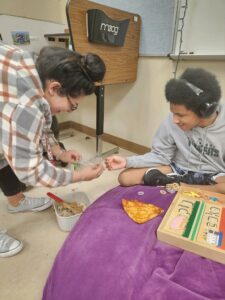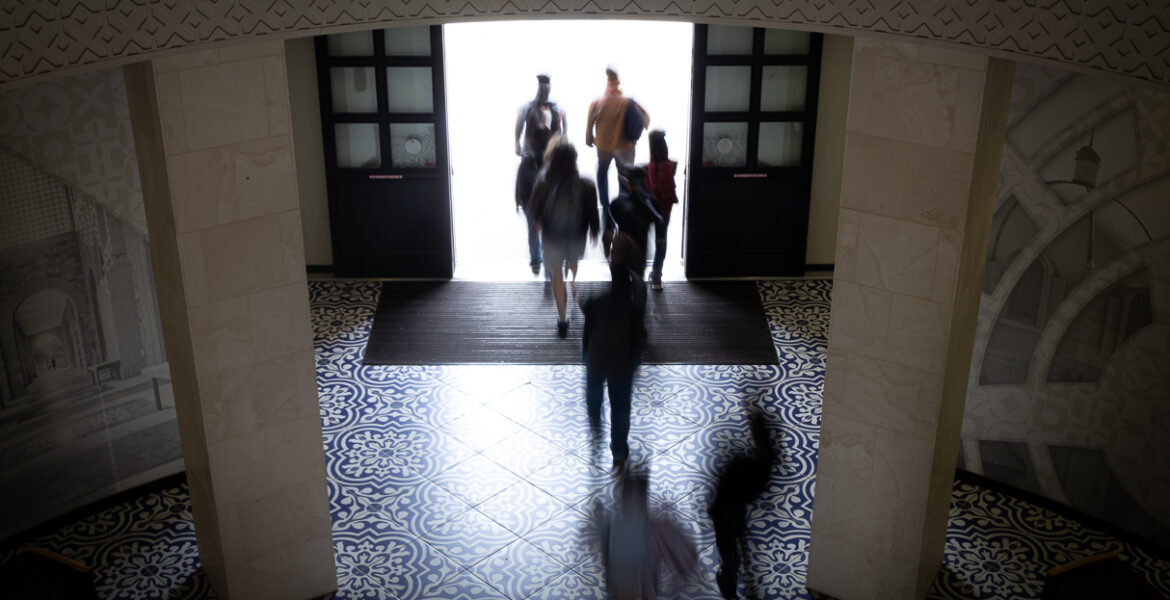The shift of special education services to the Department of Health and Human Services is a move that Texas A&M University-San Antonio faculty say could jeopardize the rights and support systems that students with disabilities depend on.
The executive order titled, Improving Education Outcomes by Empowering Parents, States, and Communities, signed earlier this year, will work toward dismantling the Department of Education, one of President Donald Trump’s campaign promises. Now, teachers and students who rely on the department are left unsure of their future.
“I think it’s a horrible idea for a variety of reasons, one of which being that health and human services don’t have educational experiences,” said Dr. James Finley, associate professor of English and coordinator of the English master’s program at A&M-San Antonio. “They don’t know how to work with school districts, they don’t have specialists there who understand that providing accommodations for students with disabilities is not strictly a medical issue, it’s an educational issue.”
Taylor Ramirez, a structured learning environment teacher at Roosevelt High School and an A&M-San Antonio student in the applied behavior analysis program, says the Department of Education helps provide the funding and resources for special education in U.S. public schools so students of all ages can receive the appropriate services for their disabilities.

“(Dismantling the Department of Education) can impact the types of services and the protection of the students – their educational intervention plan, so those are the plans that kids with special educational services have in place, it’s basically just a fact sheet,” Ramirez said. “So, it’s kind of like ‘this is the student A, they have autism and an intellectual disability, and these are the goals that are needed for them to be successful in the public-school setting.’”
As the structure of public education shifts, those responsible for preparing the next generation of teachers say their work and the future of the profession are under threat.
“As a teacher at a public institution and who works closely with people who want to be teachers in public education, I think the attack on the Department of Education is going to make our jobs a lot harder,” Finley said.
Ramirez uses Social Emotional Learning activities that aren’t academically centered. Through SEL, she teaches special ed students how to manage their emotions, build healthy relationships and make responsible decisions.
“My program is called Structured Learning Environment, so my kids are cognitively impaired, and so that requires more of a structured environment and a smaller class size. Teachers have to be certified to do that,” Ramirez said.
Ramirez also teaches vocational lessons, which are a big part of Ramirez’s role, helping special ed students build real-world job skills. These lessons include practical, hands-on activities such as sorting, stocking, using a cash register, cleaning or even basic food prepping skills. Ramirez also focuses on skills like being on time, following directions, working with others and handling emotions appropriately.

Finley says special education services and special education are a major part of the Department of Education.
“It has a lot to do with funding, and also, I think very importantly for our situation in Texas, it oversees the states and educational agencies within states and follows disability law,” he said.
Finley also said Texas has a history of not serving disabled students.
“A lot of disabled students in Texas have not had their constitutional right to a free and appropriate educational experience,” he said. “(Dismantling the Department of Education) has a lot of ramifications, but one of the things that is most concerning to me is how this will affect the constitutional rights of students with disabilities.”
Finley said his son has a list of accommodations for ADHD and anxiety that teachers have to help him with, along with an Individual Educational Plan for speech therapy.
“The IEP spells out what kinds of barriers there are for a student with disabilities to access that free and appropriate education and what the schools can do to accommodate it,” he said.
Students with IEPs have teacher aids with them in the classroom, particularly, a one-on-one aid can help them in the classroom to complete activities, stay focused, or help the student with participation.
Finley is a former English teacher at Springfield High School in Springfield, Vermont and saw some students who had one-on-one aids take notes for them if the students were unable to do so, or language processing, the aid could also help the student not get overwhelmed with sensory distractions in the classroom.
“In those examples, one-on-one aids are a necessary accommodation that allows the student to participate in public school,” Finley said.
Dr. Armando Tejeda, senior lecturer in the Department of Educator and Leadership Preparation, is concerned that the dismantling will have a residual effect.
“Mainly children, I think they’re going to wind up suffering because during this dismantling, it’s more than likely that some programs are going to be cut,” said Tejeda, who teaches Behavior Management Exceptional Individuals, Child Development of the Exceptional Learner, Assessment of Exceptional Students and Intervention and Technology in Special Education.
According to the Department of Education, Congress passed the Department of Education Organization Act in October 1979. The Department of Education can only be legally dismantled by congressional approval.
“The people that are going to be our next generation of leaders, their education is going to be hurt by this move,” Tejeda said.
To learn more about how changes happening under the Trump Administration affect A&M-San Antonio and its surrounding community, read our stories on undocumented student resources, birthright citizenship or listen to our interview about tariffs with Dr.Vipul Garg.







